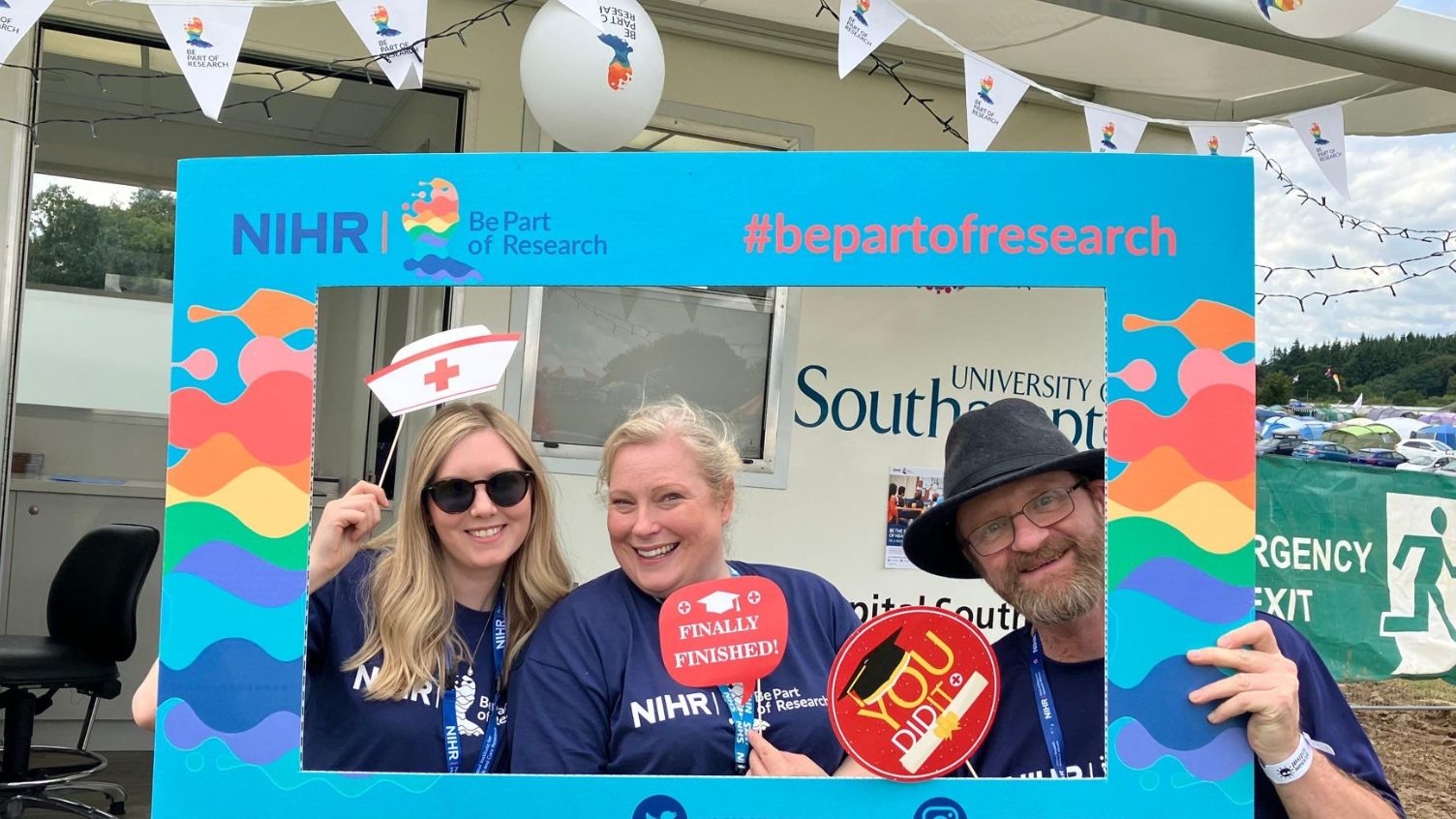Taking part in cancer research: Stephen's story
- 3 March 2023
- 4 min read
Buckinghamshire's Stephen Cossins is taking part in the University of Leeds’ FLAIR trial into drugs to treat chronic lymphocytic leukaemia (CLL).
Taking part in cancer research: Stephen's story
Stephen Cossins, 71 of Amersham, Buckinghamshire is taking part in the University of Leeds' FLAIR trial into drugs to treat chronic lymphocytic leukaemia (CLL) at Wycombe Hospital, High Wycombe. The study is looking at whether ibrutinib and venetoclax are effective, safe and their side effects in comparison with other drugs. Participants were randomly selected to receive either ibrutinib; ibrutinib and rituximab; ibrutinib and venetoclax or fludarabine, cyclophosphamide and rituximab.
Talk to your healthcare professional about taking part in research or search for studies seeking volunteers at Be Part of Research.
How did you come to take part in the trial?
I was being monitored over a number of years for CLL and the blood test results were getting worse. At a follow up consultation with the consultant at Wycombe Hospital in autumn 2019 a decision had to be taken for treatment. The consultant advised the options for treatment being either chemotherapy or joining the Flair trial which offered different ways of treating CLL depending upon which option was made available. The consultant called in the senior trial nurse and they explained the purpose of the trial and the 3 possible courses of treatment. I was also provided with detailed information about the trial, the three courses, possible outcomes and timeframe of the trial. I was then asked to take some time to consider whether I wanted to undergo a course of chemotherapy or enter the Flair trial.
Why did you choose to take part in the trial?
After considering the options and reading the various materials, as well as scanning the internet, I initially decided not to go on the trial. However, the consultant and senior trial nurse explained further about the idea and likely benefits and so I decided to opt for the trial. The reasons for this were that the aim of the trial is to try to find alternative long term treatment for CLL avoiding chemotherapy and the chance that by being accepted on the trial I might possibly have a complete cure in 2 years as opposed to possible recurrence with chemotherapy. Also, I believed it was less harmful and lower risk by having Flair trial drugs treatment and taking part would certainly have been no worse than not and, depending on the treatment course selected, could be much better.
What was your experience of taking part in the trial?
I was fortunately selected to have the two drug cancer treatment as opposed to one drug treatment or chemotherapy which meant the possibility if I reacted well to the treatment of having a complete cure after 2 years. This course of treatment involved starting the first 3 months taking one drug, Ibrutinib, with 3 tablets per day. After this period the trial introduces the second drug, venetoclax, a chemo drug. For this you have to be admitted to hospital as an inpatient to start with a low dose of the drug whilst being monitored to ensure no adverse reaction. The stay is for 2 nights depending on how your body reacts to the drug. After a few weeks there is a second hospital inpatient stay to double the dosage of the chemo drug to monitor any reaction to the new levels. After this there are no further hospital stays and the Venetoclax dosage is increased to the maximum level. Thereafter it is a straightforward daily habit of taking both the drugs involving 7 tablets a day.
My experience of taking part in the trial was that the NHS, the specialist cancer treatment staff and the trial nursing staff were all brilliant. They were all really caring, helpful and supportive both to me and my wife who was obviously worried about the treatment and illness. The consultant, senior trial nurse and all the staff during the two brief hospital stays were very caring, understanding and supportive.
Taking part in the trial needs the individual to be disciplined and adaptable because of the amount of drugs taken each day, the regular blood tests and appointments. I personally found this very easy as I knew that it was for my benefit for a possible cure as well as possibly helping others in the future. I liked having confidence in the team of people I was dealing with and the way they looked after me as a trial participant.
What would you say to other people about taking part in research?
I would thoroughly recommend other CLL sufferers to take part in this trial. I entered the trial 3 years ago and was cured, cancer free, after 2 years. I also did not have to undergo more gruelling chemotherapy. I feel that whilst it obviously benefitted me it also will go towards helping other people as the trial hopefully proves very successful. Whilst initially I was reluctant to take part in a research project I am delighted that I changed my mind and would thoroughly recommend others to do the same.
Talk to your healthcare professional about taking part in research or search for studies seeking volunteers at Be Part of Research.


